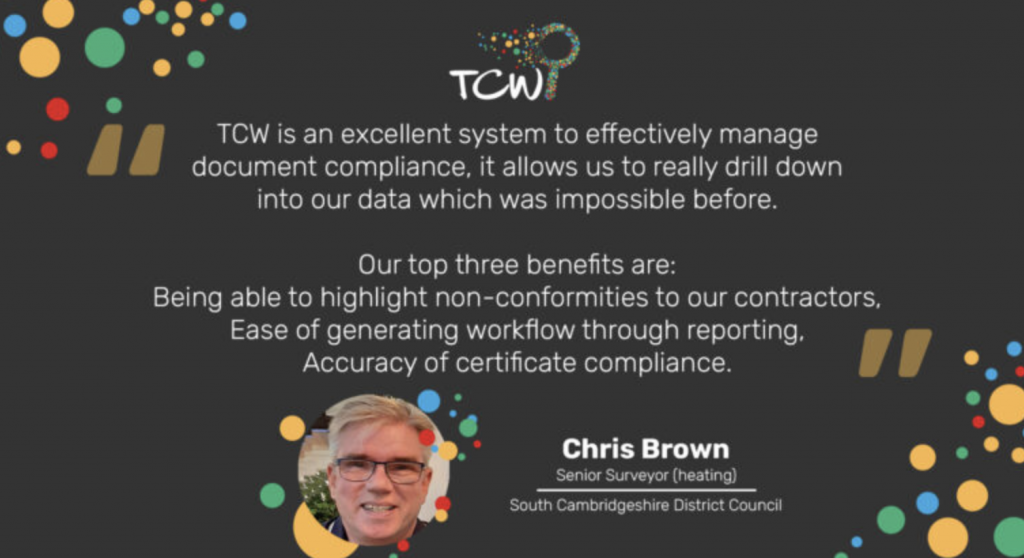TCW’s unique technology takes a multitude of digital compliance documents, all with numerous pieces of information and data within them, extracts the data, structures the data and delivers deep insights to enable Housing Associations and Local Authority to minimise risk and have a more proactive approach to the management of their properties. Helping to provide a safer, more efficient service to residents.
TCW is revolutionising compliance and asset management for housing providers by delivering deep insight into their asset and compliance data, helping to provide a safer, more efficient service to residents.
Social landlords have a constant influx of regulated and non-regulated documents relating to every property within their portfolio, each containing large amounts of data. For a social landlord with 1,000s of properties, it is a time-intensive and labour-intensive task, with the risk of human error when analysing and organising so many documents.
TCW automatically ingests these documents and extracts the data, structuring it and checking it against regulations.
Having this organised data at their fingertips helps organisations become more proactive and efficient by identifying trends enabling them to validate and report across different compliance areas, repairs and maintenance information. Providing this information in such a detailed and organised way turns it into insights that help organisations to minimise risk and ultimately improve the safety of their properties and homes for their tenants.
With over 1.7 million properties already within the software, TCW is helping local authorities and housing associations to understand their crucial property information, at scale.
We asked: What do you bring to Social Housing and the customer, the tenant?
They said: Safer properties in which to live, work and socialise. Giving social landlords the tools to be able to instantly check documents against regulations and spot trends enables them to proactively manage their property portfolios, freeing up resource to manage the risk as opposed to finding it.



